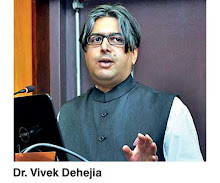Trudeau has taken a gamble in calling an early election
On 20th September, Canadians go to the polls, in an election that no one much wanted, except for incumbent Prime Minister Justin Trudeau of the Liberal Party. At the helm of a minority government since 2019, Trudeau called an election two years early, in the hopes of capitalizing on Canada’s successful vaccination campaign to entice the voters into returning his government with a majority.
The snap election, in the midst of a burgeoning fourth wave of the still ongoing COVID19 pandemic, has been much criticized, but, according to Canadian law, the head of state, Governor General Mary Simon, did not have any choice but to grant Trudeau’s dissolution request and drop the election writ. This was even despite Trudeau’s minority government not having been defeated in a confidence vote, and therefore still enjoying the confidence of the House of Commons.
As your columnist has noted on previous occasions, Canada’s brand of the Westminster model gives almost unlimited power to an incumbent prime minister, much more than the power enjoyed by his or her counterpart in the United Kingdom or in India. The prime minister not only appoints the head of state but members of the Supreme Court, as well as filling any vacancies in the Senate, the unelected upper house of Parliament. This would be akin to a Prime Minister of India appointing the President, appointing members of the Rajya Sabha, as well as the Supreme Court. Likewise, in the U.K. and India, an incumbent prime minister has only limited ability to change the normal electoral calendar — which in India is decided by the Election Commission and in the U.K. is governed by the Fixed-Term Parliament Act. Canada, in theory, also has a fixed term law, but it is essentially toothless, and, in effect, only puts an upper limit on the lifespan of a government, rather than preventing a prime minister from opportunistically calling an early election midway through the government’s mandate.
If the polls are to be believed, Trudeau’s gamble is not likely to pay off, as the Liberals are running neck-and-neck with the main opposition, the Conservative Party, led by Erin O’Toole, its new leader. At the time of filing, it appears to be a coin toss whether the Liberals or Conservatives will win the election, which will almost certainly be a minority. A minority government would be vindication for O’Toole, who became party leader after a fractious leadership battle and that too in the midst of the pandemic. For Trudeau, it would be a major defeat, given that he had called an election for the self-evident purpose of winning a majority. His leadership would most certainly be in doubt and the knives within his party would certainly be out for calling the gamble of calling a premature election and then losing the bet.
The election is also a test for Jagmeet Singh, leader of the New Democratic Party (NDP), a social democratic party that stands to the left of the Liberals. The NDP perennially run third, or sometimes even fourth, behind the Quebec separatist Bloc Quebecois, and have never sniffed victory, although Singh did play a pivotal role in keeping Trudeau’s minority government afloat the past two years. More interesting, perhaps, is the rise of the People’s Party of Canada (PPC), a conservative party that stands to the right of the Conservatives. The party was founded by Maxime Bernier, a former Conservative, who lost a bitter leadership contest with O’Toole, and then left the party to start his own. Canada has not, until now, had a viable right wing party, and, while under Canada’s first-past-the-post electoral system, the PPC, like the left wing Greens, are unlikely to win more than a handful of seats, at best, they could become increasingly important going forward, especially if they are able to pull the Conservatives back to the right and away from the crowded centre that they share with the governing Liberals. Likewise, if the Greens eat into the NDP’s votes, that might induce Singh to pivot further to the left.
For an election that Trudeau had described as “pivotal”, in an attempt to sell it to voters, the campaign has been singularly devoid of substance, with little daylight between the solidly centrist positions of the two main parties. Trudeau had attempted to create a wedge issue with his support for mandatory vaccination for federal employees and in other areas under federal jurisdiction, in the hopes of baiting O’Toole, whose party has its share of “anti-vaxxers”; likewise, Trudeau has raised the bogeyman of a putative privatization of Canada’s socialized healthcare system were the Conservatives to win. It is unclear how many, if any, of the undecided voters may be swayed by either of these issues. (Note: The Alberta crisis, with Conservative Premier Jason Kenney declaring a state of emergency, admitting he had mishandled the COVID19 pandemic, which may also hurt the federal Tories, occurred after this piece was filed.)
Looked at from India’s vantage point, given the frictions with Trudeau over his public comments on the farmer protests in India, and the memory of his disastrously failed India visit in 2018, which your columnist had elsewhere described as a “slow-moving train wreck”, New Delhi mandarins are unlikely to be terribly disappointed if Trudeau is shown the door. Having said that, O’Toole does not enjoy the close personal relationship and obvious chemistry that Prime Minister Narendra Modi enjoys with the previous prime minister, the Conservative Stephen Harper, and is himself new in the job. Don’t expect any major shift in the moribund Canada-India bilateral relationship, no matter the outcome of the election no one wanted.

No comments:
Post a Comment